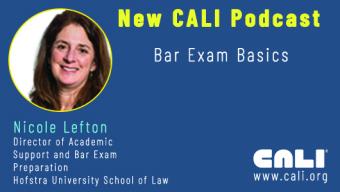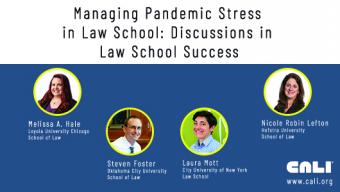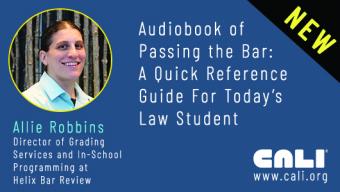For the past 31 years, The Center for Computer-Assisted Legal Instruction (CALI) has hosted its own legal education conference called "CALIcon." The CALIcon conference is a two-day event held at newly renovated or built law schools. It draws an estimated 300 attendees: law faculty, law librarians, IT professionals, distance learning staff, and law school administrators. The conference goal is to provide a unique environment for everyone to come together to share ideas, innovations, experiences, and best practices for application in law school classrooms to engage law students with tech.




